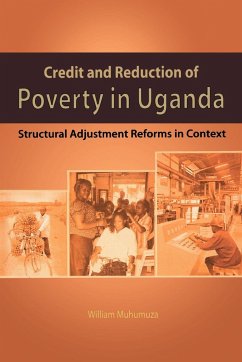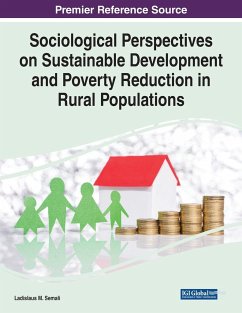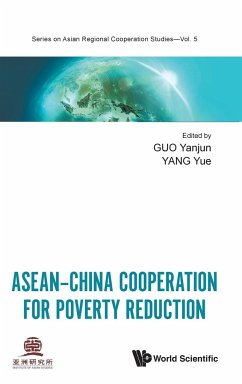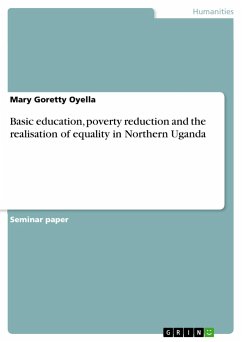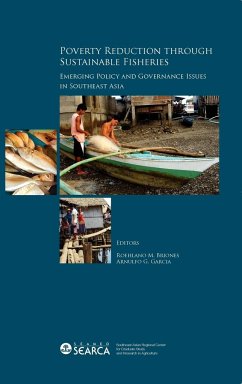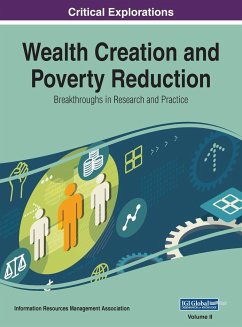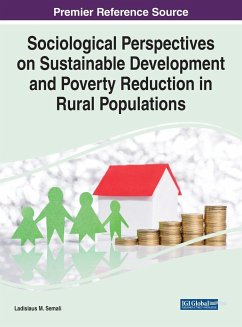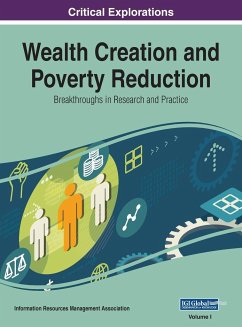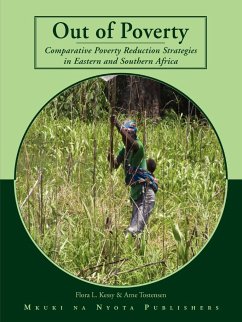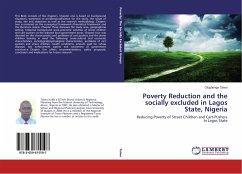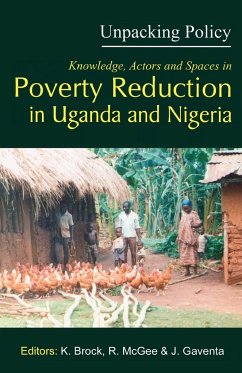
Unpacking Policy. Knowledge, Actors and Spaces in Poverty Reduction in Uganda and Nigeria
Versandkostenfrei!
Versandfertig in 1-2 Wochen
45,99 €
inkl. MwSt.

PAYBACK Punkte
23 °P sammeln!
This book published for the Institute of Development Studies at the University of Sussex presents the findings of a team of researchers based in the UK, Uganda and Nigeria. It sets out to examine the processes by which policies for poverty reduction are made and implemented, and assesses to what extent policies provide for positive change in the lives of poor people. The project advocates a policy process that is radically different from the traditional linear model; one that departs from structural adjustment exigencies of external conditionality to one in which actors, knowledge and policy s...
This book published for the Institute of Development Studies at the University of Sussex presents the findings of a team of researchers based in the UK, Uganda and Nigeria. It sets out to examine the processes by which policies for poverty reduction are made and implemented, and assesses to what extent policies provide for positive change in the lives of poor people. The project advocates a policy process that is radically different from the traditional linear model; one that departs from structural adjustment exigencies of external conditionality to one in which actors, knowledge and policy spaces interact in policy making. Strategies are generated and owned locally and the poor are understood as active participants in their own development. The book argues that if political systems and the policy processes through which they are enacted are to be democratised, then so should the knowledge base that feeds those policy processes. This means working by a deliberative process not only to produce knowledge, but also to incorporate knowledge of different kinds; differentiating between respective roles and powers of discourse, and reconstituting the prevailing cultures of legitimacy and representation. Although based on evidence from Uganda and Nigeria, the book is conceived to have application to the struggle against poverty more widely.





